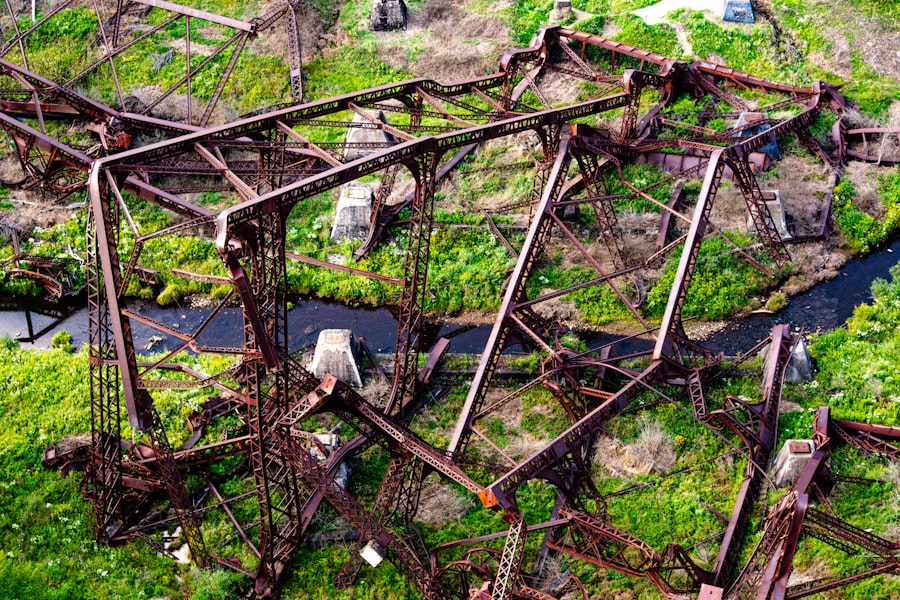When you think of Godzilla, you might envision a towering monster wreaking havoc on cities, but “Shin Godzilla” offers a fresh perspective on this iconic creature. Released in 2016, this film revitalizes the franchise by intertwining the classic kaiju narrative with contemporary socio-political themes. Directed by Hideaki Anno and Shinji Higuchi, “Shin Godzilla” is not just a monster movie; it serves as a commentary on Japan’s political landscape, particularly in the wake of the Fukushima disaster.
The film’s unique approach to storytelling invites you to reflect on the complexities of modern governance and the societal fears that arise in times of crisis. As you delve into the film, you will notice that it employs Godzilla as a metaphor for various issues plaguing Japan. The creature’s emergence is not merely a spectacle; it symbolizes the anxieties surrounding natural disasters, government inefficiency, and the consequences of nuclear power.
By blending horror with political critique, “Shin Godzilla” challenges you to consider how a nation grapples with its past while facing an uncertain future. This film is a powerful reminder that even in the realm of fantasy, the realities of human experience are never far behind.
Key Takeaways
- Shin Godzilla is a 2016 Japanese kaiju film directed by Hideaki Anno and Shinji Higuchi, which reimagines the classic Godzilla franchise with a focus on political and social commentary.
- The political climate in Japan during the release of Shin Godzilla was marked by public dissatisfaction with the government’s response to natural disasters and nuclear power issues, which is reflected in the film’s portrayal of bureaucratic inefficiency.
- Japan’s historical relationship with nuclear power and disasters, such as the Fukushima Daiichi nuclear disaster, heavily influenced the themes and narrative of Shin Godzilla.
- Shin Godzilla portrays the Japanese government’s bureaucratic red tape and slow response to the monster’s rampage, highlighting the challenges of coordinating a response to a large-scale disaster.
- The role of international relations in Shin Godzilla is depicted through the involvement of the United States in the crisis, reflecting Japan’s reliance on foreign assistance in times of need.
- Shin Godzilla reflects societal fear and anxiety surrounding natural disasters and nuclear power, tapping into the collective trauma and anxiety of the Japanese people.
- Critiques of Shin Godzilla’s political themes focus on its portrayal of government incompetence and the lack of accountability, while others praise its realistic depiction of bureaucratic challenges.
- The legacy of Shin Godzilla in Japanese popular culture and politics is marked by its impact on public discourse surrounding government accountability, disaster response, and nuclear power policy.
The Political Climate in Japan during the Release of Shin Godzilla
The political climate in Japan during the release of “Shin Godzilla” was marked by significant tension and uncertainty. In the years leading up to 2016, Japan had been grappling with the aftermath of the 2011 Fukushima nuclear disaster, which exposed vulnerabilities in the country’s disaster preparedness and response systems. As you watch the film, you can sense the palpable anxiety that permeated Japanese society at that time.
The government’s handling of the crisis was widely criticized, leading to a growing distrust among citizens regarding their leaders’ ability to protect them. In this context, “Shin Godzilla” emerges as a reflection of public sentiment. The film captures the frustrations of a populace that feels let down by bureaucratic inefficiencies and political indecision.
As you witness the characters navigate the chaos unleashed by Godzilla, you may find yourself resonating with their struggles against a system that seems ill-equipped to respond to an unprecedented crisis. The film serves as both a critique and a mirror, revealing how deeply intertwined politics and public safety are in contemporary Japan.
Historical Context: Japan’s Relationship with Nuclear Power and Disasters

To fully appreciate “Shin Godzilla,” it is essential to understand Japan’s historical relationship with nuclear power and disasters. Following World War II, Japan embraced nuclear energy as a means of rebuilding its economy and ensuring energy independence. However, this reliance on nuclear power has always been fraught with tension, particularly given the country’s vulnerability to natural disasters such as earthquakes and tsunamis.
As you explore this history, you will see how it shapes the narrative of “Shin Godzilla,” where the monster embodies both the destructive potential of nature and the catastrophic consequences of human decisions. The Fukushima disaster serves as a critical backdrop for understanding the film’s themes. The meltdown at the Fukushima Daiichi Nuclear Power Plant not only resulted in widespread environmental damage but also shattered public trust in government institutions responsible for safety regulations.
In “Shin Godzilla,” you can observe how these historical events inform the characters’ responses to the monster’s rampage. The film poignantly illustrates how past traumas continue to haunt present-day Japan, creating a complex tapestry of fear and resilience that resonates deeply with audiences.
Shin Godzilla’s Portrayal of Bureaucracy and Government Response
| Aspect | Details |
|---|---|
| Government Response | Slow and bureaucratic, focused on protocols and procedures |
| Decision Making | Fragmented and hindered by red tape |
| Communication | Lack of coordination and information sharing |
| Leadership | Struggles to take decisive action |
| Public Perception | Frustration and distrust towards government’s handling of crisis |
One of the most striking aspects of “Shin Godzilla” is its unflinching portrayal of bureaucracy and government response in times of crisis. As you watch the film unfold, you will notice how characters are often bogged down by red tape and indecision, reflecting real-life frustrations with governmental processes. The film’s depiction of emergency meetings filled with endless discussions and conflicting opinions serves as a critique of how bureaucratic inertia can hinder effective action during critical moments.
The characters in “Shin Godzilla” are not just passive observers; they are emblematic of a system that struggles to adapt to rapidly changing circumstances. You may find yourself empathizing with their dilemmas as they attempt to balance public safety with political considerations. The film highlights the tension between scientific expertise and political maneuvering, illustrating how decisions made in high-stakes situations can have far-reaching consequences.
This portrayal resonates with viewers who have witnessed similar dynamics in their own governments, making “Shin Godzilla” a relevant commentary on bureaucracy’s role in crisis management.
The Role of International Relations in Shin Godzilla
In addition to its focus on domestic politics, “Shin Godzilla” also addresses international relations and their impact on national security. As you watch the film, you will see how Japan’s interactions with other countries shape its response to the Godzilla threat. The involvement of foreign powers underscores the complexities of global politics, particularly in an era where threats transcend national borders.
The film raises questions about sovereignty, collaboration, and the responsibilities nations have toward one another in times of crisis. The international dimension adds another layer to the narrative, inviting you to consider how Japan navigates its position on the world stage. The portrayal of foreign governments reacting to Godzilla’s emergence reflects real-world anxieties about national security and alliances.
As you engage with these themes, you may find yourself contemplating how global dynamics influence domestic policies and public perception. “Shin Godzilla” serves as a reminder that in an interconnected world, crises often require collective action rather than isolated responses.
Shin Godzilla’s Reflection of Societal Fear and Anxiety

Fears and Anxieties
The film taps into primal fears surrounding natural disasters, technological failures, and governmental incompetence. As you immerse yourself in the story, you may find that these themes evoke your own anxieties about safety and security in an unpredictable world.
The Monster as a Manifestation of Fear
The monster itself becomes a manifestation of these fears—a tangible representation of what happens when systems fail. The emotional weight of “Shin Godzilla” lies in its ability to articulate collective trauma while also offering a space for catharsis. You may find yourself grappling with feelings of helplessness as characters confront overwhelming odds against an unstoppable force.
Hope Amidst Chaos
Yet, amidst this chaos, there are moments of resilience and determination that inspire hope. The film encourages you to reflect on how societies cope with fear and uncertainty, ultimately suggesting that even in the face of disaster, there is potential for growth and renewal.
Critique and Response to Shin Godzilla’s Political Themes
The political themes presented in “Shin Godzilla” have sparked considerable debate among critics and audiences alike. Some praise the film for its bold critique of bureaucracy and government response, viewing it as a necessary commentary on contemporary issues facing Japan. You may find yourself agreeing with those who appreciate how the film challenges viewers to confront uncomfortable truths about their own political systems.
By using a monster movie as a vehicle for social critique, “Shin Godzilla” elevates genre cinema into a platform for meaningful discourse. However, not all responses have been positive. Some critics argue that the film’s heavy-handed approach to political themes detracts from its entertainment value.
They contend that while the social commentary is important, it can overshadow character development and narrative cohesion. As you engage with these critiques, you might consider how balance is achieved in storytelling—whether it’s possible to convey powerful messages without sacrificing emotional depth or narrative flow. Ultimately, “Shin Godzilla” invites you to reflect on your own interpretations and responses to its complex themes.
Legacy of Shin Godzilla in Japanese Popular Culture and Politics
As time passes since its release, “Shin Godzilla” has solidified its place in Japanese popular culture and politics. Its impact extends beyond cinema; it has influenced discussions about disaster preparedness, government accountability, and societal resilience in Japan. You may find that references to “Shin Godzilla” appear in various forms of media—art, literature, and even political discourse—as it continues to resonate with contemporary audiences.
The film has also inspired a new generation of filmmakers who seek to explore similar themes through innovative storytelling techniques. As you reflect on its legacy, consider how “Shin Godzilla” has redefined what it means to be a kaiju film in today’s world—transforming it from mere entertainment into a powerful vehicle for social commentary. Its enduring relevance serves as a reminder that art can provoke thought and inspire change, encouraging you to engage critically with both popular culture and the world around you.
In conclusion, “Shin Godzilla” stands as a remarkable achievement that transcends traditional monster movie tropes by weaving together complex themes related to politics, society, and history. As you explore its layers, you’ll discover not only a thrilling cinematic experience but also an invitation to reflect on your own relationship with fear, governance, and resilience in an ever-changing world.
